What do Investors Look for in a Startup in 2025
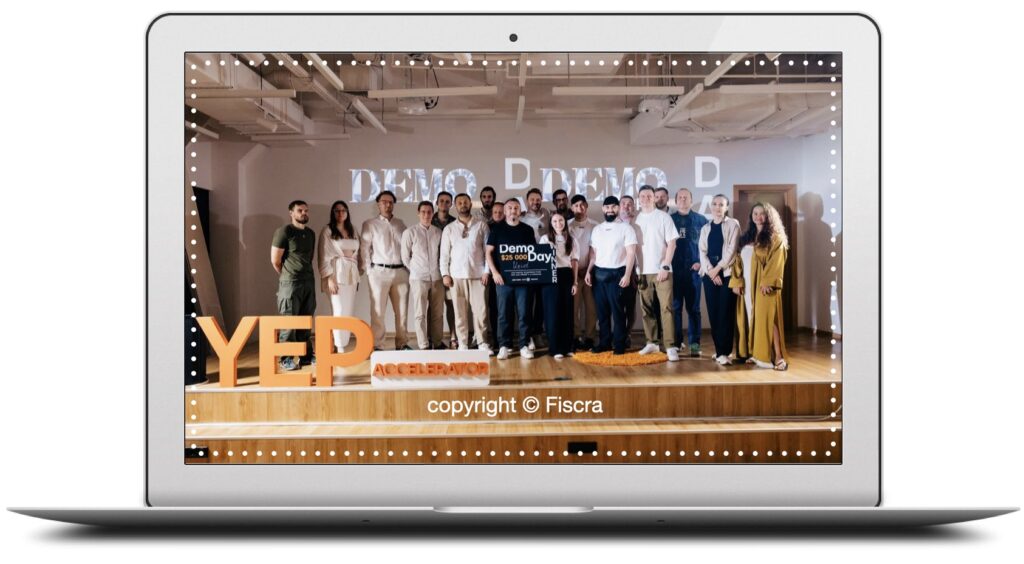
On July 24, 2025, the demo day of Yep! Accelerator event took place in Kyiv. The Yep! ecosystem is a project aimed at helping develop business startup ideas. The event featured several stages and the demo day, where the best projects competed for the main prize of $25,000 of non-equity funding.
This article analyzes the event, its participants, and the winner to pinpoint what do investors look for in a startup in 2025.
Event Overview
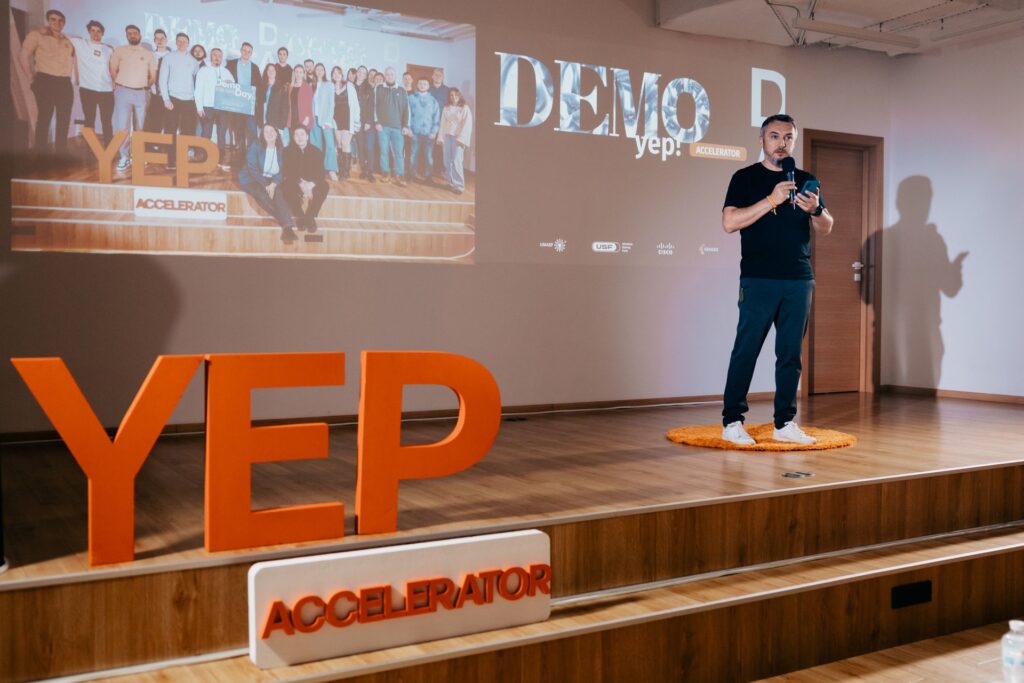
Yep! Accelerator is a part of the Yep! program aimed at helping startups with MVPs or prototypes to find investors and get valuable coaching for practical future development. The event was divided into several blocks:
First phase
It was dedicated to personalized workshops and strategy consultations. Participants could learn more about product validation and sales strategies.
Second phase
During the second phase, the startup teams met with investors and continued to attend the workshops.
Demo day
Pitching of their project and the final competition.
Yep! Accelerator was a rich event that promoted financial literacy among new entrepreneurs and gave them opportunities to find like-minded people, share their projects, and learn how to get investors for a startup.
Participants
There were nine total participants:
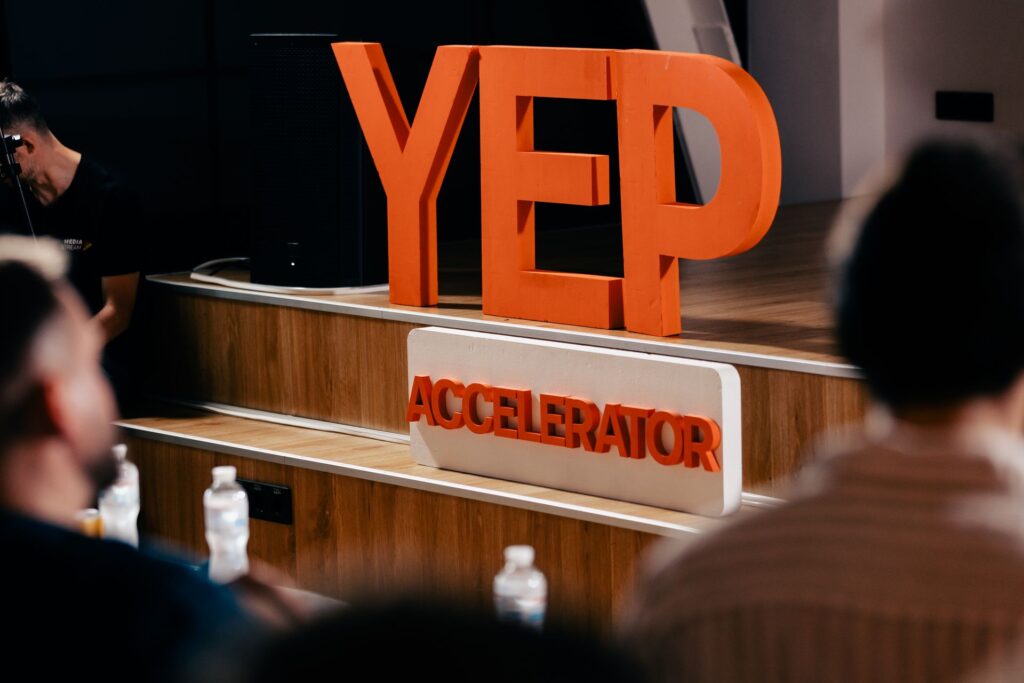
- CaseResearchAI – a startup that aimed to help resolve commercial disputes.
- Codewius – a tool for candidate recruiting via real-life project evaluation.
- MyHome – a SaaS tool for home service workers to help them convert occasional income into consistent revenue.
- Obriy.AI – a tool for streamlining business processes.
- Markit.now – a tool for omnichannel marketing strategies optimization.
- HEFT – a startup dedicated to wearable devices for cattle health monitoring.
- Atelier Automatique – an AI solution for tailoring business to avoid overproduction.
- DjookyX – a business tool for musical artists to get consistent profit from their art.
- Uniot – a startup that introduced IoT solutions for commercial and civil entities.
Each participant showed strong points and innovative ideas in their respective field.
Prizes
Uniot claimed the main prize for the competition of $25,000 funded by Yep! Accelerator program and UAMEF’s u.ventures. Besides, the team also received an invitation to the MZP league and an inclusion in the local Plug and Play dealflow for global exposure.
There were honored winners who also received prizes, including the following:
- CaseResearch – tickets to Slush.
- Obriy.AI – tickets to Slush, 3 months residency in LIFT99, and an automatic entry in the semifinals of the IT Arena startup competition in Lviv.
- HEFT – an automatic entry in the semifinals of the IT Arena startup competition in Lviv.
The array of awards was more than a financial prize, but also new opportunities for further development of the projects.
Startup Pitches Analysis
Four out of nine teams were successful in the demo day of Yep! Acceleration. But what sets successful startups apart from ones that lack polish? What investors look for before investing? The following block will analyze what each of the startups presented and what areas of improvement they share.
Winners pitches overview
Uniot
Uniot is an IoT platform designed for building, testing, deploying, and managing smart solutions, presented by Liza Troianova. It aims to bridge the gap between consumer tools and industrial systems, offering a low-code solution tailored for small and medium-sized businesses (SMBs).
Uniot allows for faster deployment, lower costs, and flexibility across various applications such as smart buildings, energy efficiency, agriculture, and logistics.
The platform has already demonstrated success in a pilot project with a Ukrainian university, significantly reducing costs and energy consumption. Uniot targets a market opportunity of $600 billion, with a goal of achieving $10 million in annual revenue within two to three years. The company is currently seeking partnerships for automation, beta testers, and early-stage investors, while exploring potential use cases and market expansion.
Obriy.ai
Obriy.ai, presented by Vyacheslav Shestakovsky, is an AI-driven platform designed to enhance customer support in contact centers by automating responses to repetitive inquiries.
The team boasts over 60 years of combined experience in business and IT, with a strong network in Ukraine and connections to European and American markets.
The platform integrates seamlessly with existing CRM systems, achieving a 95% success rate in answering customer queries. The business model includes a monthly fee and a pay-per-resolution charge, aiming for significant savings for clients.
The European chatbot market is valued at €12 billion and is growing rapidly. Obriy.ai is currently piloting its solution with a major retail network and has a pipeline of potential clients. The company is getting funding for a startup to support its expansion and emphasizes its competitive edge by requiring no changes to existing business processes, unlike many competitors. Mr. Shestakovsky also shared insights about his previous successful business exits and the financial needs of the startup as it grows.
CaseResearch
CaseResearch AI is an AI platform designed to assist dispute lawyers, especially in the construction sector, by significantly reducing the time required to prepare for disputes from 150 hours to just 4.
Founded by Anatoliy Kotlyar and his team, the platform automates the identification of inconsistencies in contracts and documents, focusing on construction disputes, which are often document-heavy.
They plan to charge a fraction of what general contractors typically spend on disputes and aim to capture 6% of the market, potentially generating $100 million in annual revenue. Currently targeting the US market, they plan to expand to the UK and the EU. The platform is designed to integrate easily into existing workflows and is currently in discussions for pilot projects with potential clients. The team is also preparing to raise a pre-seed round in 2026.
HEFT
HEFT is a startup that offers an AI-powered sensor system designed to optimize cow reproduction and enhance herd productivity.
Founded by Serhii Ryzhkov, who has over 14 years of experience in agriculture, HEFT addresses the critical issues of cow health and fertility, which cost farms approximately $300 per cow annually and contribute to a total loss of $40 billion each year.
The system includes a collar that monitors cow activity and health, alerting farmers to any changes. HEFT aims to simplify technology adoption for farmers, offering a plug-and-play system at a low cost. The startup has already sold 50 units and is seeking $500,000 to scale production and expand into the US and European markets, targeting a market worth over $60 billion.
The following table summarizes the key points of the projects:
| Startup | Focus & Solution | Market & Traction | Business Model & Funding | Strengths | Weaknesses / Risks |
| Case Research | AI platform for construction dispute lawyers; reduces prep time from 150h to 4h | Targeting the US first, later the UK/EU; aiming for 6% of the market ($100M potential); pilots planned | Charges a fraction of dispute costs; pre-seed planned for 2026 | Niche expertise, high cost savings, seamless workflow integration | Narrow vertical focus; conservative legal sector; delayed funding timeline |
| Obriy.ai | AI chatbot automating repetitive inquiries in contact centers (95% accuracy) | €12B European chatbot market; piloting with major retail network; client pipeline growing | Monthly fee + pay-per-resolution; seeking funding to expand | No client process changes; experienced team; scalable across industries | Crowded AI chatbot market; high marketing costs; needs proof of ROI |
| HEFT | AI-powered sensor collar optimizing cow health & fertility | Addresses $40B annual losses; $60B market; 50 units already sold | Plug-and-play hardware sales; seeking $500K to scale | Critical pain-point solution; founder’s 14+ years of agri experience; easy farmer adoption | Hardware scaling challenges, slow agri adoption cycles, and distribution complexity |
| Uniot | Low-code IoT platform for SMB smart solutions (buildings, energy, logistics) | $600B IoT market; successful pilot with a Ukrainian university | Subscription/project-based; seeking partners, testers, early investors | Broad applicability; understanding a scaling strategy; rapid deployment; flexible low-code approach | Highly competitive IoT space; broad focus may dilute traction; limited early data |
All of the pitches share a strong emphasis on AI-driven solutions. Startups like Case Research and Obriy.ai excel in niche expertise, while HEFT and Uniot showed tangible results and working pilots.
The shared strengths are scalability potential and clear problem solutions. Yet, all of the startups face difficulties with competitive markets and adoption strategies. A good idea and execution are only halfway to success. The ability to create a flexible go-to-market strategy for funding for early-stage startups will complete the pitch and dramatically increase chances for success.
Uniot was a winning startup of the event that claimed the major prize. Its case is a perfect opportunity to understand what exactly helps a startup to reach its goals.
Successful Startup Case Study: Key Elements
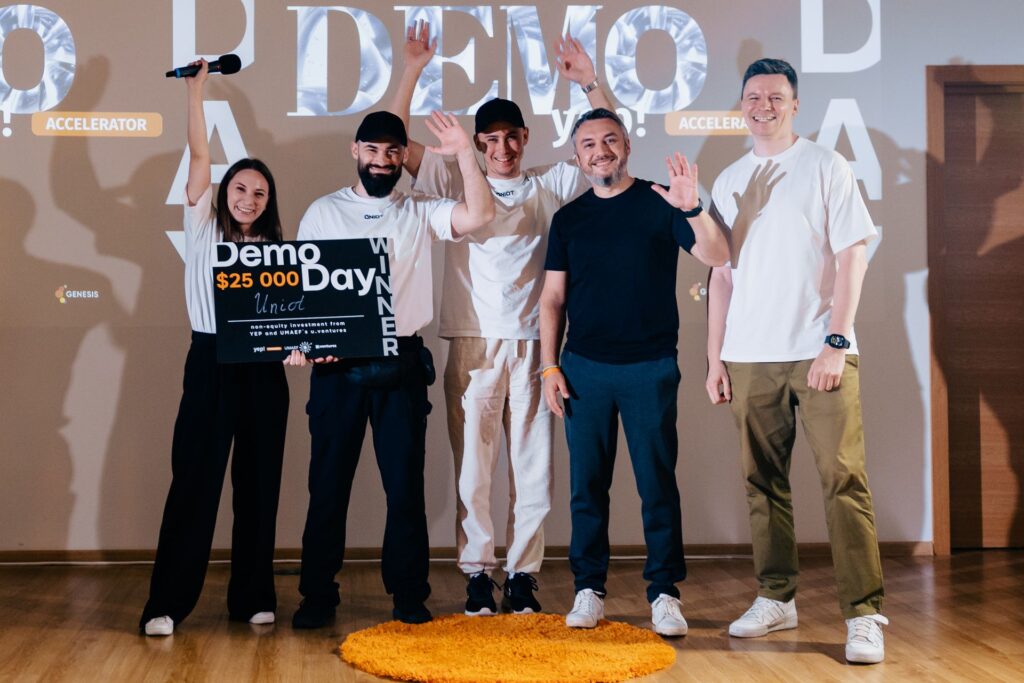
Uniot won due to several factors that the team carefully considered before Yep! Acceleration event. Focusing on these key factors will help other startups reach operational success:
Focus on tangible results: proven pilot project
Uniot presented real-life cases of their products’ work. Having an MVP and a list of proven applications helps build trust with the investors and customers more than promises alone.
Understanding the market and scale strategy
One of the first questions that you must ask yourself every day as a founder is, “How can my project achieve $1M in revenue per year and continue to scale easily?” It is important because the high level of revenue increases the value of the startup and its attractiveness to investors. Read more here: ARR Startup Valuation.
Uniot showed during the pitch a clear understanding of how to achieve $10M in revenue per year and received a competitive advantage among the rest of the projects.
A Strong team
During the speech, Elizabeth explained that the founders have the necessary expertise to develop the project, and the jury’s attention was increased when they noted that the founders have worked successfully together for over 5 years.
Build a flexible go-to-market strategy
A plan for a couple of years of development is another must for a startup. Yet, in an ideal scenario, you need several such plans that will take into account market fluctuations, failure to meet expectations, or the option of succeeding them. With several marketing strategy scenarios available, you increase your chances.
Uniot showed the clear steps of the project development for the following two years.
A competitive easy-to-use product
One of the Uniot’s strengths is seamless and easy integration. If you are working on a software product, low-code integrations are a valuable element of success. If your startup presents a device or a service, think of methods on how to make it more approachable for non-proficient clients.
Taken together, these elements create a roadmap for transforming innovative concepts into sustainable, competitive ventures capable of thriving beyond the demo stage.
FAQ: What Do Investors Look for in a Startup
About the Author
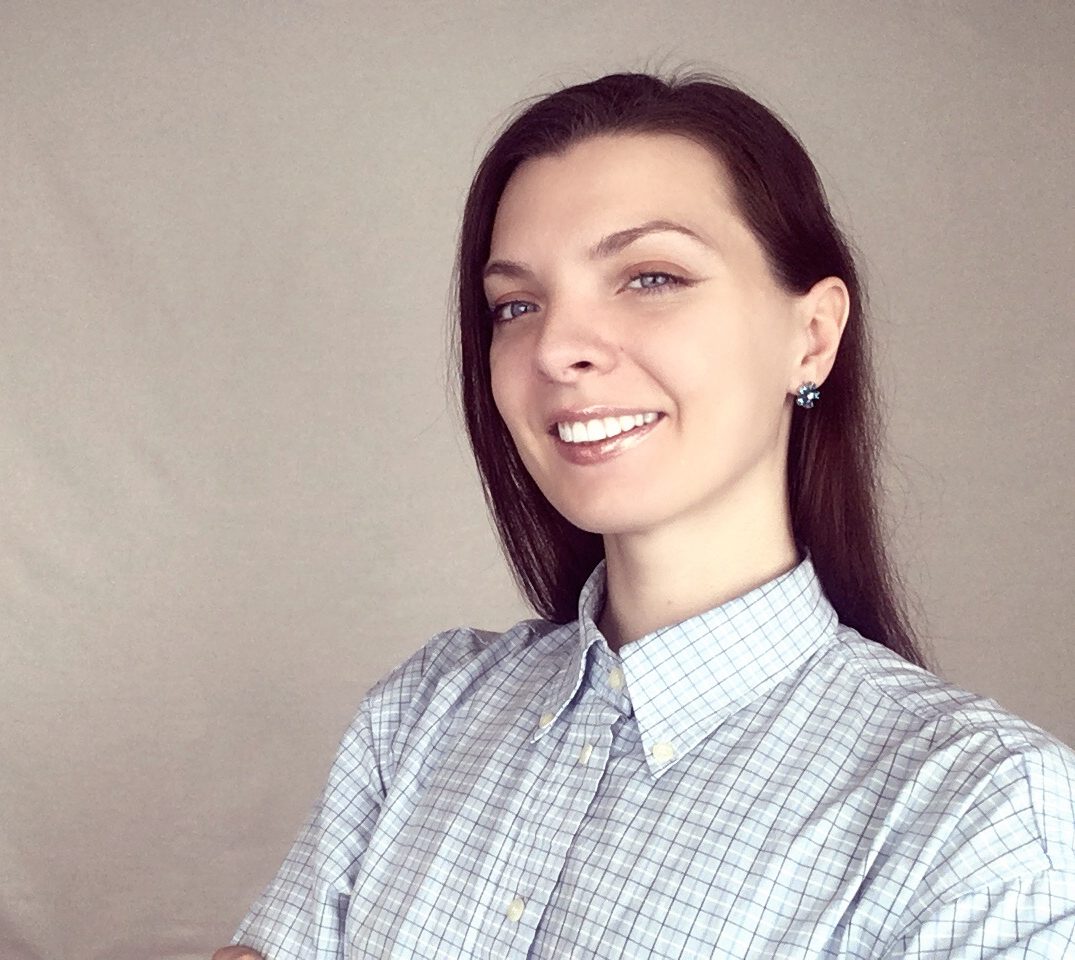
Kateryna Moskovenko
Financial Consultant with 14 years of experience in accounting, management accounting, and financial modeling; Founder of Fiscra; Author of courses and trainings in financial modeling, business planning, and entrepreneurship; prepared more than 50 financial models for startups.
Linkedin
